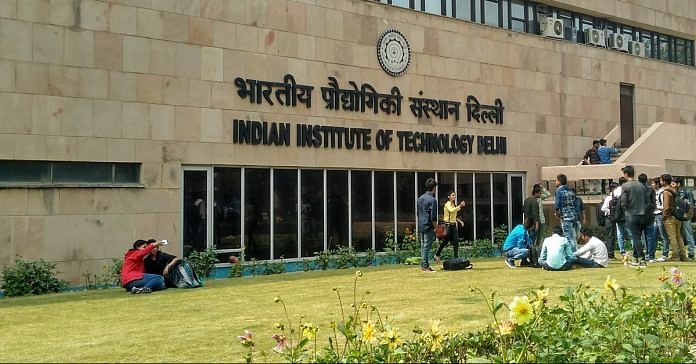
New Delhi: A team of students at the Indian Institute of Technology (IIT) Delhi has developed the first prototype of a solar-powered air pollution monitoring device that communicates via 5G.
The innovation could pave the way for a more efficient and larger network of stations to analyse the pollution problem in the national capital.
The new device has sensors to measure concentrations of nitrogen oxide, ozone, carbon mono-oxide and sulphur dioxide — some of the most harmful components of air pollution. It can also measure the levels of particulate matter — PM1, PM2.5 and PM10 — along with other environmental parameters such as temperature and humidity.
According to team members Payali Das and Sushmita Ghosh, both PhD students in the Department of Electrical Engineering at IIT Delhi, the prototype is also equipped with a GPS system for accurate geo-tagging.
Simply put, geo-tagging helps add a location and time stamp to the data.
“The GPS chip will give the exact location — it will give the longitude and latitude, as well as the date and time of the data when the data was collected,” Das told ThePrint.
The advantage of this system over existing air pollution monitors is that it is 5G enabled, said Das, which means that in future a lot more of these devices can be connected to a single network to generate a much more extensive database of pollutants.
“Currently, the system used to transmit information from the monitors to the computing network consumes more power and is also not efficient as it can get obstructed by tall buildings,” Das said.
“5G technology can overcome this challenge. It also allows for more data to be transmitted without overloading the network,” she said.
The 5G leap
The research is being funded by the Union government’s Department of Telecommunications under a Rs-224 crore 5G testbed project that aims to encourage Indian startups and industries to take an early lead in 5G technologies.
Various projects at IIT Madras, IIT Hyderabad, IIT Kanpur, Centre of Excellence in Wireless Technology (CEWiT), Society for Applied Microwave Electronics Engineering and Research (SAMEER) and Indian Institute of Science (IISc), Bangalore are being funded under this programme.
5G is considered to be the next big leap in internet and communication technologies that will allow devices to interact with each other with minimum human intervention.
While the IIT Delhi pollution device prototype is still in its nascent stage, the team — working under the guidance of professors Shouri Chaterjee and Swades De — is already in talks with government agencies to help further fine tune their product and make it ready for use.

COMMENTS